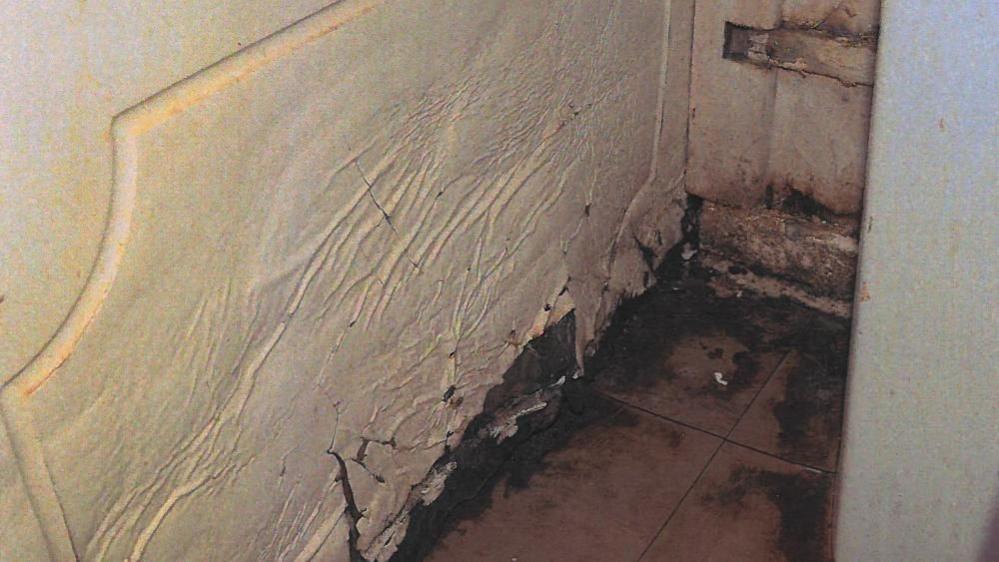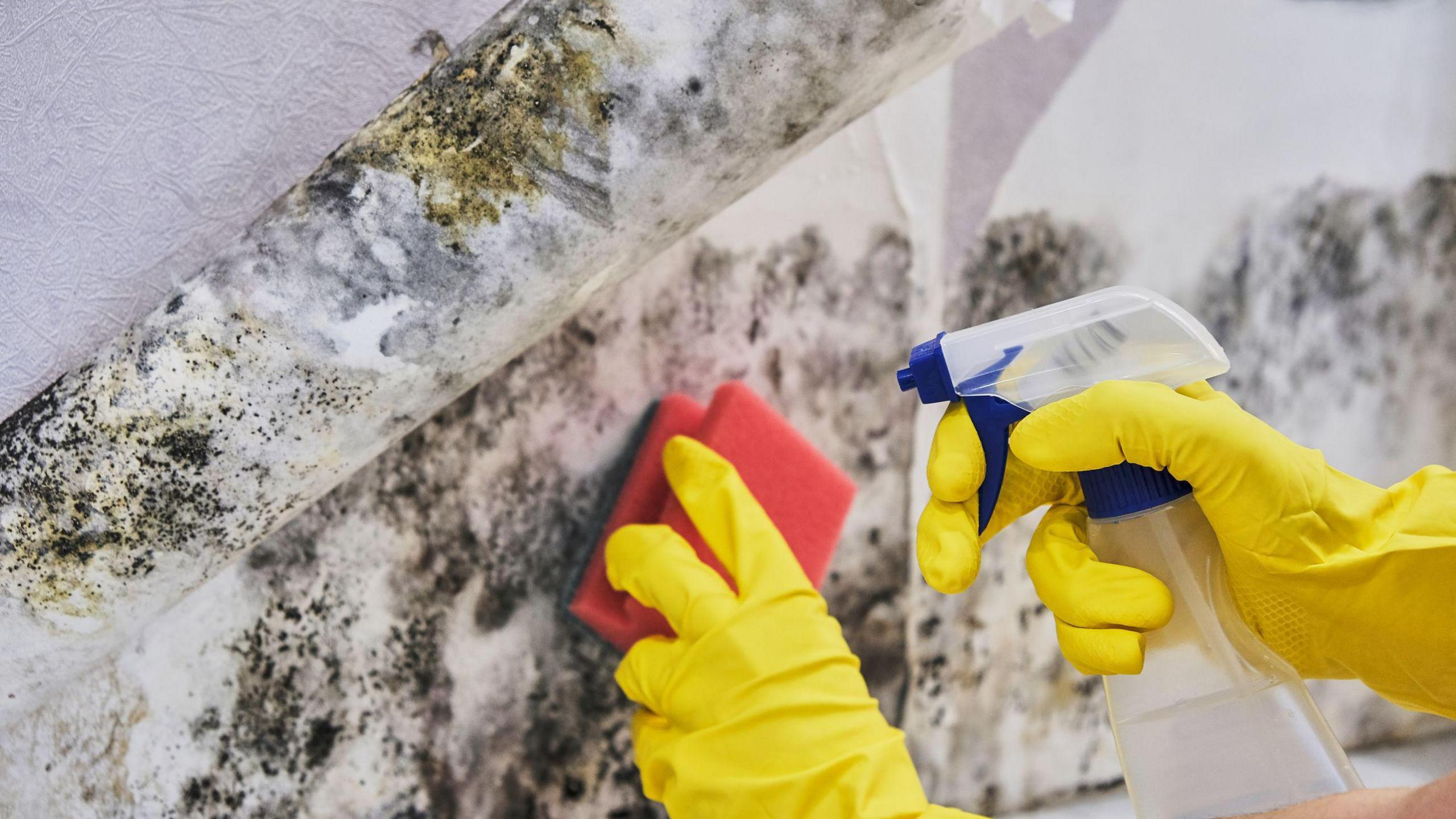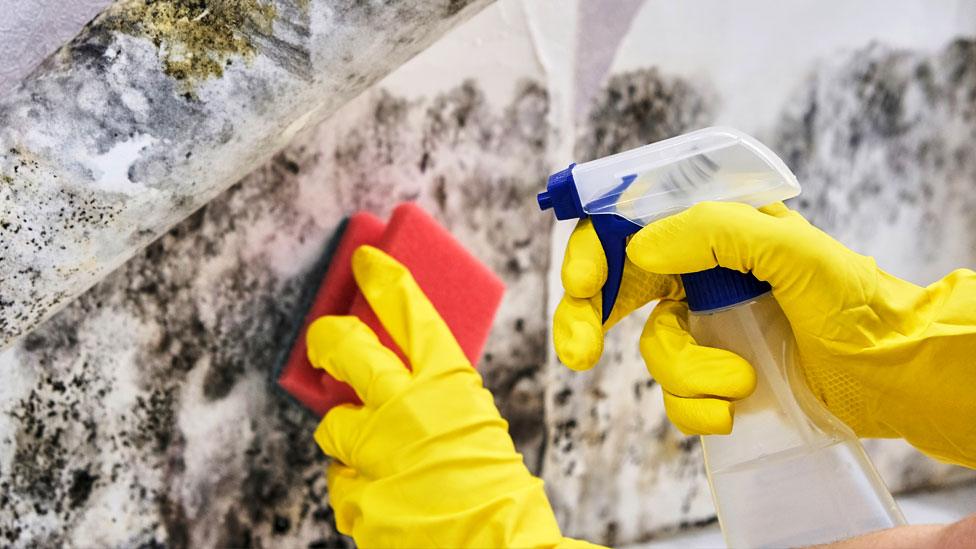Law forcing landlords to fix mould comes into effect

Two-year-old Awaab Ishak died after he was exposed to mould at his family's home in Rochdale
- Published
Landlords will be compelled to investigate and fix damp and mould in social housing in England within strict timescales after new regulations came into effect.
Campaigners had called for the reforms after two-year-old Awaab Ishak died from mould exposure at his Rochdale home in 2020.
Known as Awaab's Law, social landlords - generally the local council or a housing association - will from now be required to repair hazards reported to them within 24 hours.
"Everyone deserves a safe and decent home to live in and Awaab Ishak is a powerful reminder of how this can sadly be a matter of life or death," Housing Secretary Steve Reed said.
"Our changes will give tenants a stronger voice and force landlords to act urgently when lives are at risk, ensuring such tragedies are never repeated."
Awaab died from a respiratory condition caused by the severe mould he was exposed to, a coroner concluded.
It happened despite his father repeatedly raising the issue with Rochdale Boroughwide Housing, but no action was taken.
During his inquest, coroner Joanne Kearsley said the association should have been more "proactive" and asked: "How in the UK in 2020 does a two-year-old child die as a result of exposure to mould?"

Awaab Ishak died after being exposed to toxic mould in his home
Complaints about substandard living conditions in social housing in England were more than five times higher than five years ago, according to a report released by the housing watchdog in May.
Under the first phase of the regulations to be rolled out, landlords must investigate damp and mould which poses a significant risk within 10 working days of reporting, and make properties safe in five working days.
Alternative accommodation must also be offered if homes cannot be made safe within the required timeframes.
For both types of hazards, they must also write the findings to tenants within three working days of inspection.
'Phased approach'
Further parts of the regulations will be rolled out in phases.
The next phase, to come into force in 2026, will extend the timeframes to other significant hazards such as electrical and structural issues.
The staggered rollout has previously been criticised by housing charity Shelter, who said they delays "represent a real risk to the health and safety of tenants, and puts lives at risks".
But government guidance on the regulations, external said: "The phased approach does not mean that social landlords have leeway on addressing dangerous issues in their homes in the meantime."
Get in touch
Tell us which stories we should cover in Greater Manchester
Listen to the best of BBC Radio Manchester on Sounds and follow BBC Manchester on Facebook, external, X, external, and Instagram, external. You can also send story ideas via Whatsapp to 0808 100 2230.
Related topics
- Published6 February

- Published13 February

- Published15 December 2022

